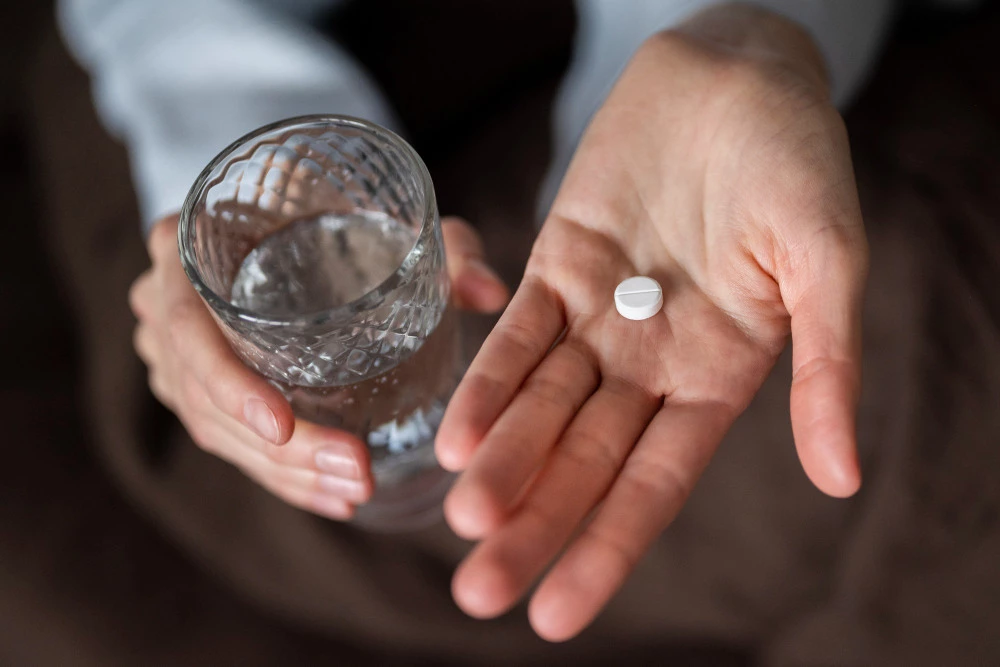Announcement
This article will help provide an understanding of post-SSRI sexual dysfunction (PSSD), including its prevalence, symptoms, and impact on quality of life. This article will also explore treatment options and how you can manage your symptoms.
Introduction
PSSD, post-SSRI sexual dysfunction, is a condition that persists after SSRI treatment has ended. It’s a common side effect of SSRIs to cause issues with sexual performance. In fact, nearly 100% of people who take SSRIs experience things like numbing in the genital area, delayed ejaculations, muted orgasms, or a loss of libido.
For those who struggle with PSSD, these symptoms persist long after medication has been discontinued. Persistent sexual dysfunction can have a severely negative impact on quality of life.

What is Post SSRI Sexual Dysfunction (PSSD)?
PSSD is a medical condition where users discontinue SSRIs but continue to experience sexual dysfunction. Symptoms can include:
- Numbness or anesthesia of the genitals
- Delayed orgasms
- Ejaculatory dysfunctions
- Decreased libido
Four Types of Sexual Dysfunction
In order to understand how post-SSRI sexual dysfunction syndrome is different from other sexual dysfunction, one has to understand the four types.
- Libido Disorders
Libido disorders can be caused by things like low testosterone, heart disease, diabetes, hormonal changes, depression, or anxiety. These disorders result in a low level of sexual desire or sexual interest.
- Arousal Disorders
Arousal disorders, commonly referred to as erectile dysfunction, make it difficult or impossible to get an erection when physically aroused. In these cases, individuals are interested in sex but might not be able to derive satisfaction because they can’t maintain an erection.
- Orgasm Disorders
Orgasm disorders can be the result of reduced libido or hormonal changes. They typically involve a delayed orgasm or an absence of orgasm. While more common in women, they can affect men.
- Pain Disorders
Pain disorders can be caused by things like infections, skin conditions, Peyronie’s disease, or herpes leading to pain experienced during intercourse.
Common problems can lead to any of these four types of sexual dysfunction, including hormonal imbalances, chronic diseases, diabetes, cardiovascular disease, or alcoholism. Many medications can disrupt normal sexual function, particularly antidepressants.
PSSD is different from other forms of sexual dysfunction in that the symptoms fall under several categories, such as libido disorders, arousal disorders, and orgasm disorders. Moreover, it has a direct cause: the SSRIs.
How Common is Post SSRI Sexual Dysfunction?
How common is post-SSRI sexual dysfunction, and what contributes to the development of PSSD?
Research indicates that nearly 100% of those who take SSRIs have:
- Genital sensory changes within 30 minutes,
- Numbing or reduced sensitivity in the area,
- Genital arousal and irritability,
- Delay of ejaculation,
- Muting of orgasm,
- Complete loss of libido.
However, the overall risk of PSSD is estimated at 4.3 per 100,000 clients.
Several factors may contribute to the development of PSSD.

Drugs
Post-SSRI sexual dysfunction syndrome is more likely to occur in clients who have been exposed to certain drugs. This is particularly true of chemotherapeutic agents like imatinib.
Genetics
Similarly, the risk of post-SSRI sexual dysfunction is higher in those who have genetic predispositions to differentiation of the Th-cell.
Stress
High levels of psychological stress can contribute to the risk of developing PSSD. High rates of chronic stress while taking SSRIs contribute to a higher risk of developing sexual dysfunction after taking SSRIs.
Impact of PSSD on Quality of Life
Surveys have found that 59% of people who struggle with post-SSRI sexual dysfunction say it has an extremely negative impact on their quality of life. Another 23% state it has a very negative impact on quality of life.
Post-SSRI sexual dysfunction can leave men:
- Depressed
- Angry
- Socially isolated
- With low self-esteem
- Avoiding their spouses
- Feeling less masculine
- Struggling with denial
Post-SSRI sexual dysfunction syndrome can have significant effects on the individual and any of their partners. Without openly discussing the symptoms, it can lead to a lack of trust, poor communication, and hostility within a relationship.
Men who are struggling with low self-esteem or feeling less masculine might avoid their spouse or stop engaging in sex. Turning down sexual advances from a partner with regularity can lead to confusion for the partner and mistrust.
Men in committed relationships, for example, experience high levels of anxiety and self-esteem. But it can also lead to partners feeling anxious, undesirable, or suspicious.
Treatment Options for Post-SSRI Sexual Dysfunction
Treatment options for post-SSRI sexual dysfunction are limited. It wasn’t until 2006 that PSSD was considered a formal condition. To date, few studies have found an effective treatment.
Pharmacological interventions
To date, some studies have used medications like vortioxetine and bupropion to change the dopamine/serotonin ratio in patients. Results found significant improvement in erectile function.
and their effectiveness;

Non-pharmacological approaches for managing PSSD symptoms
Post-SSRI sexual dysfunction treatment is more effective where non-pharmacological approaches are used. This can include:
- Lifestyle modifications
- Stress management techniques
- Psychological support and therapy
Lifestyle modifications can be particularly important when it comes to managing anxiety and stress. The more an individual struggles with sexual dysfunction, the more likely they are to experience fear and anxiety as soon as their next attempt at sexual function presents itself. Anxiety induces an adrenaline rush, which counters an erection. High levels of anxiety trigger the chemical signals to open the veins that would otherwise hold blood in the penis.
With stress management techniques and therapy, individuals can learn to cope with the symptoms of their condition. Learning to manage anxiety can help alleviate the chemical signals which can exacerbate symptoms.
Therapy can help provide insight into emotions, acknowledge them, and speak more openly about experiences with PSSD. This can also encourage open communication with partners.
Summing Up
If you believe you are struggling with post-SSRI sexual dysfunction syndrome, it is important to consult with a qualified healthcare professional. The best way to find post-SSRI sexual dysfunction treatment is to speak about your symptoms openly and honestly with your healthcare provider. Always advocate for personalized PSSD treatment plans. Don’t be afraid to seek professional help, support and explore potential treatment options for PSSD.